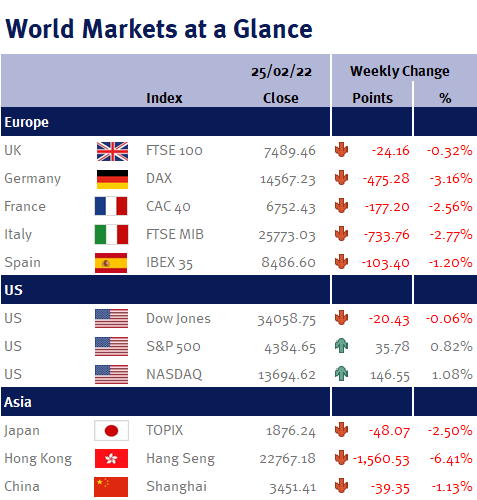Despite the escalation in actions from Russian president Vladimir Putin since our last update, we believe that the financial markets have already priced in much of the negativity, and on Friday, we saw markets close significantly up.
Over the week, we’ve seen Russian troops invade Ukraine, veiled threats of nuclear force from Putin, and sanctions from the west, with one of the most recent sanctions being an exclusion of some Russian lenders from the SWIFT messaging system that underpins trillions of dollars’ worth of transactions.
The sanctions are beginning to take effect, with the Ruble plummeting, and queues at ATMs seeing Russian residents trying to get their cash out. In order to limit the financial impact, Russia has also announced their markets will open 3 hours later today. As of this morning, in order to try to insulate the severe financial impact on their economy, the Bank of Russia has increased interest rates an unprecedented 10.5% to 20%. This comes as the west sanctions look to potentially block Russian access to approximately $640 billion they built up in reserves.
The nuclear deterrent narrative from Putin is likely a distraction from the reality of the current invasion tactics, whilst we are not saying one should not be worried, the recent threats from Putin appear it be the noises of a leader that is out of ideas, and that is potentially now seeing his long-term leadership of Russia under threat. As the threat from Russia has likely not had the effect that Putin intended, driving western nations – if not the world, closer together – and supplying military support, shipping not only weapons, but also funds seeing the likes of the US already supplying $350m of support.


